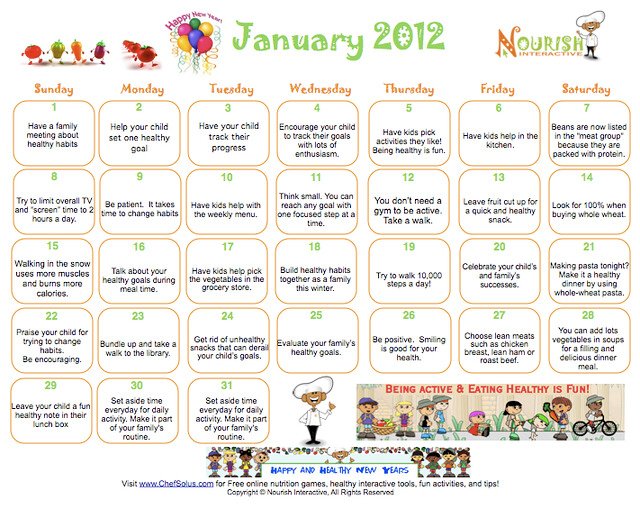In a world that constantly challenges our mental resilience, it becomes increasingly important to equip ourselves with the tools necessary to navigate life’s ups and downs. Just as we have a physical First Aid Kit for emergencies, constructing a Mental Wellness Toolkit can offer a lifeline when faced with emotional turmoil or psychological hurdles. This creative assembly of strategies, techniques, and resources becomes a personal arsenal, ready to be deployed in the moments we need it most. So, roll up your sleeves, for in this article, we delve into the art of crafting a Mental Wellness Toolkit that will empower you to embark on a journey of self-discovery, growth, and lasting inner peace.
Table of Contents
- Building a Foundation of Self-Awareness
- Exploring Coping Mechanisms and Emotional Regulation
- Incorporating Mindfulness Practices into Daily Life
- Developing Healthy Habits for Physical and Mental Wellbeing
- Seeking Support and Professional Help
- Q&A
- Closing Remarks

Building a Foundation of Self-Awareness
Understanding oneself is a vital aspect of personal growth and development. Building a solid foundation of self-awareness not only helps us make better decisions, but also allows us to navigate through life with clarity and authenticity. Here are some key steps to guide you on this transformative journey:
- Be present: Start by taking the time to be fully present in the moment. Engage all your senses and observe your thoughts and emotions without judgment.
- Reflect on experiences: Look back on past experiences and contemplate how they have shaped your beliefs, values, and behaviors. Identify patterns and triggers to gain deeper insights into yourself.
- Explore your strengths and weaknesses: Recognize your unique strengths and abilities, and leverage them to your advantage. Similarly, acknowledge your weaknesses and areas for improvement, as they provide opportunities for growth.
- Cultivate self-compassion: Treat yourself with kindness and understanding. Embrace your imperfections and learn from your mistakes, as they are essential components of your journey towards self-discovery.
- Seek feedback: Actively seek feedback from trusted friends, family members, or mentors. Their perspectives can offer fresh insights and help you gain a more holistic view of yourself.
Remember, building self-awareness is an ongoing process. It requires patience, self-reflection, and an open mind. By nurturing this foundation, you lay the groundwork for personal growth, stronger relationships, and a greater sense of purpose.

Exploring Coping Mechanisms and Emotional Regulation
When it comes to navigating the ups and downs of life, understanding coping mechanisms and honing emotional regulation skills is essential. Coping mechanisms refer to the strategies and behaviors individuals employ to cope with stress, adversity, or challenging emotions. People often turn to a variety of coping mechanisms depending on the situation and their personal preferences.
One effective coping mechanism is engaging in physical activity. Exercise releases endorphins, boosts mood, and reduces stress. Taking a brisk walk or hitting the gym can serve as a healthy outlet to channel pent-up emotions and restore a sense of calm. Additionally, practicing mindfulness and meditation can help individuals regulate their emotions and achieve a state of mental clarity.
Developing a support network is another important coping mechanism. Surrounding oneself with friends, family, or supportive communities can provide an invaluable source of comfort during difficult times. Sharing thoughts and feelings with trusted individuals can offer a fresh perspective, guidance, or even just a comforting presence. Together, these coping mechanisms and emotional regulation skills empower individuals to navigate the challenges of life with resilience and grace.

Incorporating Mindfulness Practices into Daily Life
One of the key challenges we face in today’s fast-paced and stressful world is finding a way to stay grounded and present in the midst of our daily lives. Incorporating mindfulness practices into our routines can be a powerful tool to help us achieve this. Mindfulness, at its core, is the practice of being fully aware of the present moment, without judgment or attachment.
So how can we bring mindfulness into our daily lives?
- Start your day with intention: Begin each morning with a few moments of stillness. Take a deep breath, close your eyes, and set an intention for the day. This could be as simple as staying present and appreciative of the small joys in life.
- Practice mindful eating: Rather than rushing through meals or eating on autopilot, take the time to savor each bite. Pay attention to the flavors, textures, and sensations in your mouth. Eating mindfully can not only enhance your enjoyment of food, but also help you tune into your body’s hunger and fullness cues.
- Engage in mindful movement: Incorporate mindfulness into your exercise routine by fully focusing on each movement and sensation. Whether it’s yoga, walking, or dancing, approach it as a form of meditation. Notice the way your body feels, the rhythm of your breath, and the connection between your mind and body.
By incorporating these mindfulness practices into our daily lives, we can cultivate a greater sense of inner calm, enhanced self-awareness, and an overall increased appreciation for the present moment. Remember, the key is to be gentle and patient with yourself as you embark on this journey of incorporating mindfulness into your daily routine. Happy practicing!

Developing Healthy Habits for Physical and Mental Wellbeing
Developing healthy habits is crucial for maintaining both physical and mental wellbeing. By incorporating small changes into our daily routines, we can greatly improve our overall health and happiness. Here are a few tips to help you establish and maintain healthy habits:
1. Prioritize Regular Exercise:
Physical activity not only helps improve cardiovascular health but also releases endorphins, the “feel-good” hormones that boost mood and reduce stress. Incorporate exercise into your routine by finding activities you enjoy, such as swimming, hiking, or dancing. Aim for at least 30 minutes of moderate aerobic exercise five days a week, and don’t forget to add strength training exercises a few times a week to improve muscle tone and bone density.
2. Practice Mindfulness and Relaxation Techniques:
Stress management is essential for our mental wellbeing. Take time each day to practice mindfulness or relaxation techniques, such as deep breathing exercises or meditation. These practices can help reduce anxiety, improve focus, and promote emotional balance. Incorporate them into your routine by setting aside a few minutes each morning or evening for self-care.
3. Nourish Your Body with a Healthy Diet:
Eating a balanced diet rich in nutrients not only supports physical health but also contributes to mental wellbeing. Include plenty of fruits, vegetables, whole grains, lean proteins, and healthy fats in your diet. Limit processed foods, sugary snacks, and excessive caffeine, as they can negatively affect your energy levels and mood. Remember, hydration is also crucial, so drink plenty of water throughout the day.
By adopting these healthy habits, you’ll be investing in your physical and mental wellbeing, leading to a happier and more fulfilling life.
Seeking Support and Professional Help
When faced with challenging situations or overwhelming emotions, can be instrumental in navigating through the difficulties and finding effective solutions. It is important to remember that reaching out for assistance is not a sign of weakness, but rather a courageous step towards healing and personal growth.
One way to seek support is by confiding in trusted friends or family members who can offer a listening ear and empathetic advice. They can provide a safe space to share concerns and provide valuable perspectives. Additionally, joining support groups or online communities can be incredibly beneficial as you connect with individuals who have experienced similar struggles. This creates a network of understanding and encouragement, reminding you that you are not alone.
While support from loved ones can be invaluable, professional help should not be overlooked. Licensed therapists and counselors possess the expertise to guide you on your journey towards wellness. They provide a non-judgmental environment that fosters open communication and empowers you to explore underlying issues. With their guidance, you can acquire effective coping skills, gain self-awareness, and develop strategies to overcome obstacles.
Remember, is an important step towards self-care and emotional well-being. It allows you to gain new insights, create healthier patterns, and ultimately lead a happier, more fulfilling life.
Q&A
What is a mental wellness toolkit?
A mental wellness toolkit is a collection of strategies, techniques, and resources that individuals can use to support their mental health. It is a personalized set of tools that can help improve well-being and cope with challenges.
Why is it important to have a mental wellness toolkit?
Having a mental wellness toolkit is important because it equips individuals with strategies to navigate the ups and downs of life. It promotes self-awareness, resilience, and empowers individuals to take control of their mental well-being.
What can I include in my mental wellness toolkit?
Your mental wellness toolkit can include a variety of tools such as meditation apps, stress-relief exercises, uplifting quotes, self-help books, calming music playlists, journaling prompts, and resources for reaching out to mental health professionals.
How can I create my own mental wellness toolkit?
Creating your mental wellness toolkit begins by identifying activities or tools that bring you joy, calmness, and relaxation. Try experimenting with different techniques and resources, and include those that resonate with you the most in your toolkit.
How often should I use my mental wellness toolkit?
There is no set frequency for using your mental wellness toolkit. It can be helpful to engage with your toolkit on a regular basis, incorporating the activities and resources whenever you feel stressed, overwhelmed, or in need of a mental boost.
Can I customize my mental wellness toolkit?
Absolutely! Your mental wellness toolkit should be tailored to your unique needs and preferences. Feel free to add, remove, or modify tools based on what works best for you. Remember, it’s all about supporting your own mental well-being.
Are there any free resources I can include in my mental wellness toolkit?
Yes, there are numerous free resources that can be a valuable addition to your mental wellness toolkit. From meditation apps like Headspace, to online communities and support groups, explore the wealth of free resources available to support your mental health.
Can a mental wellness toolkit replace professional help?
While a mental wellness toolkit can be a helpful resource, it is important to remember that it is not a substitute for professional help. If you are experiencing significant mental health concerns, it is crucial to seek guidance from a qualified mental health professional.
Closing Remarks
As we reach the end of this journey into crafting your very own mental wellness toolkit, take a moment to revel in the power you hold within. You’ve delved into the depths of your being, embracing each aspect of yourself with compassion and intention. It is within this personalized toolkit that you have discovered the keys to unlocking an abundant life of mental well-being.
Remember, dear reader, that self-care is not a fleeting indulgence but a lifelong commitment. Your mental wellness toolkit serves as your faithful companion, always ready to provide solace, inspiration, and support when the storms of life arise. It is a sanctuary that resides within you, waiting patiently to be accessed whenever you beckon.
But do not be fooled by the simplicity of this toolkit, for its impact is immeasurable. It is a symphony of self-compassion, gratitude, mindfulness, and resilience, harmoniously working together to steady your ship amidst the turbulent waves of existence. Each tool meticulously chosen and lovingly honed, so that you may navigate the labyrinth of life with grace and serenity.
In your mental wellness toolkit, you will discover the power of self-reflection, allowing you to unearth the hidden treasures of your psyche. Embrace the practice of journaling, letting the ink flow freely as you release the burdens that weigh heavily on your mind. Find solace in meditation, a gateway to the realm of calm and clarity, where you can silence the chaos that often ensnares us.
Cultivate a deep appreciation for the beauty that exists around you. Fill your toolkit with the vibrant hues of nature, the sweet melodies of music, and the heartfelt conversations that awaken your soul. Seek out connection, for it is in the presence of kindred spirits that we find solace, strength, and understanding.
Above all, remember the resilience you possess. Within your toolkit lies the unwavering belief that you have overcome trials before and will do so again. This belief shines as a beacon of hope amidst the darkest of moments.
As we conclude, let this article be a catalyst for the creation of a mental wellness toolkit that brims with authenticity and personal meaning. Your toolkit is as unique as the stars that grace the night sky, as intricate as a hand-crafted tapestry. It is a testament to your commitment to self-care and a testament to your unwavering desire for a life of mental well-being.
So go forth, dear reader, armed with your mental wellness toolkit. Tread along the path of self-discovery and explore the vast landscapes of your inner world. And as you do, remember that you are never alone, for your toolkit is always by your side, eager to guide you towards the serenity and joy that you truly deserve.
As an affiliate, my content may feature links to products I personally use and recommend. By taking action, like subscribing or making a purchase, you’ll be supporting my work and fueling my taco cravings at the same time. Win-win, right?
Want to read more? Check out our Affiliate Disclosure page.